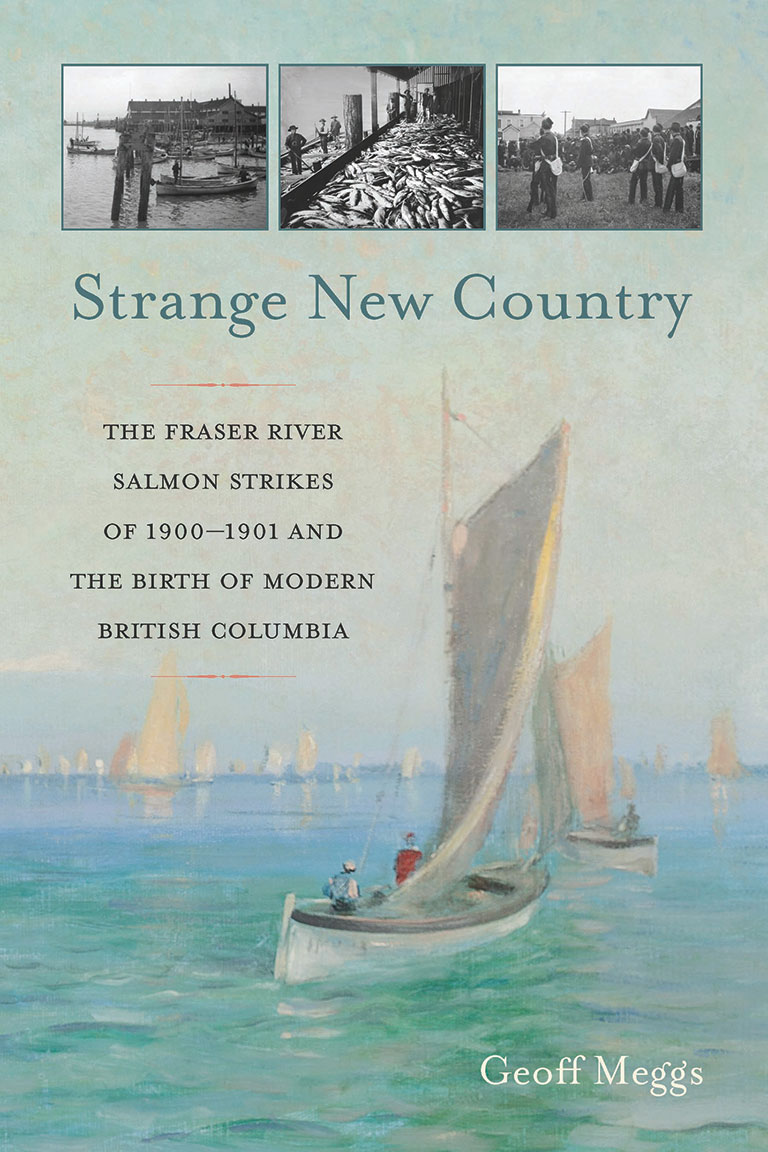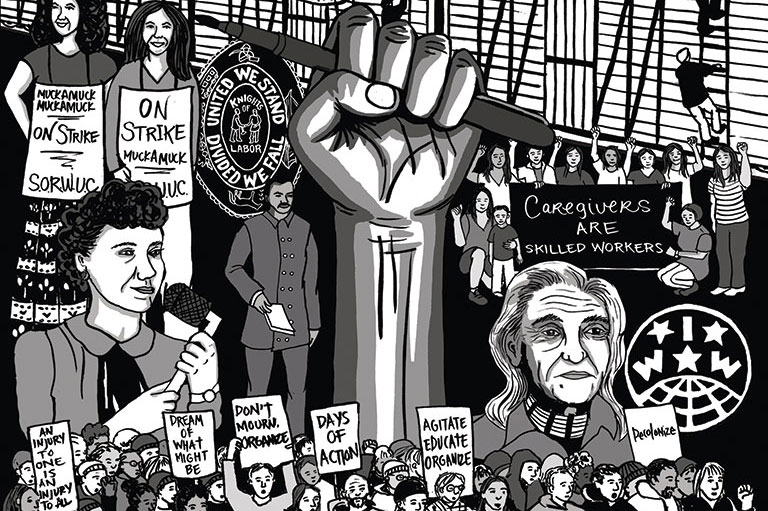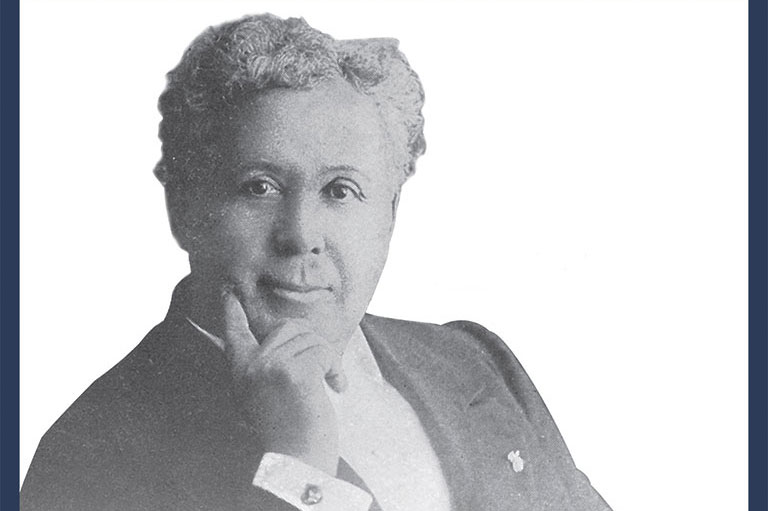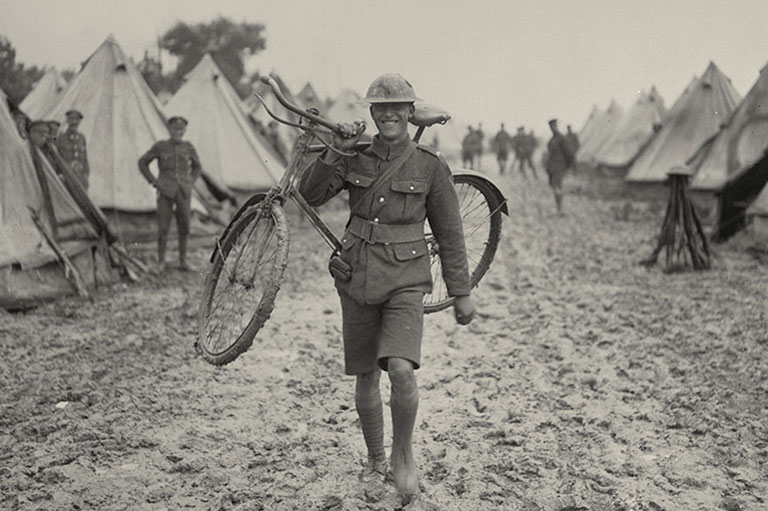Strange New Country

Strange New Country: The Fraser River Salmon Strikes of 1900–1901 and the Birth of Modern British Columbia
by Geoff Meggs
Harbour Publishing, 236 pages, $22.95
Organizing a strike in British Columbia’s salmon industry might have seemed like an almost impossible goal, in particular given tight timelines and the need to create an effective coalition across ethnic lines. Yet two strikes were launched more than a century ago, and the fishermen fought together, more or less, to bring about better compensation for their work.
In Strange New Country, Geoff Meggs argues that the strikes in 1900 and 1901 marked a turning point in the province’s history. While he doesn’t provide strong evidence to back up his statement, there is no doubt that the strikes were significant events both for the fishermen based in Steveston, south of Vancouver, and for the industrial elite in their mansions in the city.
Work on the fishing boats was not easy, given the need for speed during the salmon run every summer, as the fish returned to freshwater spawning grounds. Fishermen had to deal with nets up to four hundred metres long and had little protection from the elements in their twelve-metre boats.
Tensions rise when people are working hard, and there were many extra reasons for stress during the salmon runs. Indigenous fishermen were struggling to retain their right to the fish, while Japanese fishermen were looking for equality with whites, and everybody was looking for better pay for their work.
Meggs introduces us to the leaders of each group, something that helps to put a human touch on this fascinating, well-researched account of two challenging summers on the Pacific coast.
Themes associated with this article
Advertisement







